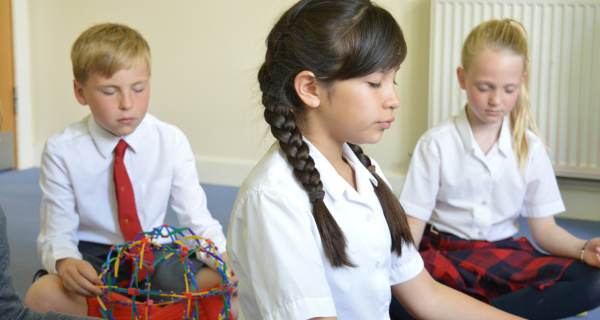As parents, we strive to raise confident, compassionate, and responsible children who can navigate life's challenges with integrity. But achieving that ambition can be challenging. Karen Beveridge is a Neuro-Developmental and Sound Therapist specialist who runs sessions for ESMS on various aspects of Health and Well-Being, including the way we talk to children about their emotions. She recently held a seminar for Primary 1 parents where she explored the importance of self-regulation in a child's development and discussed effective strategies for positive discipline. By understanding these concepts and implementing them in our parenting approach, we can empower our children to become their best selves.
In Primary 1 and throughout Junior School, children’s development levels can vary vastly. Helping them to self-regulate helps with their development.
For those who couldn’t attend Karen’s seminar, here are her top tips for helping your child to self-regulate:
A Child Needs to Learn: 'No' before 'Yes'
Before our children can fully embrace the power of consent and assert their desires respectfully, they must first understand the boundaries set by the word "no." By teaching them to respect their own limits and the limits of others, we lay the foundation for healthy communication and self-advocacy. This is why so many children say “No” when parents ask them to do something. They are learning the power of their own voice and their own needs, as frustrating as this can be for parents! Help them to perhaps express this in a better way using “Not at this moment” rather than just “no”.
Expressing Themselves Honestly and Considerately
Before they learn how to be considerate in their responses, children will answer only honestly which can have us cringing in the supermarket and when they make what we consider rude comments to strangers! Encouraging our children to express themselves honestly is vital, but it is equally important to help your children to find words to express things differently and in a more considerate way.
Ownership and Sharing
Children need to develop a sense of ownership over their belongings before they can embrace the value of sharing. By fostering a sense of responsibility, we help them understand the importance of taking care of their possessions and appreciating the joy that comes from sharing what they own with others.
Knowing Themselves and Considering Others
Before children can fully understand the perspectives and needs of others, they must have a strong sense of self-identity. By encouraging self-reflection and exploration, we empower our children to understand who they are, what is important to them, and how their actions can impact those around them.
Understanding Punishment vs. Discipline
It is crucial to differentiate between punishment and discipline. Punishment often arises from a parent's frustration or desperation, aiming to make a child pay for their mistakes. Discipline, on the other hand, focuses on teaching new skills, managing behaviour, problem-solving, and emotional regulation. By adopting an authoritative approach to discipline, we guide our children towards learning from their mistakes and developing socially appropriate ways to handle emotions and challenges. Have a think about what rules are important to your family and that both parents are on the same page about and consider an approach that could include time out or removal of privileges.
Promoting Self-Regulation in Children
To foster self-regulation in our children, remember the following four principles: Repeat, Praise, Connect, and Model.
Repeat: Provide clear and consistent guidance, repeating expectations and boundaries.
Praise: Acknowledge and celebrate your child's efforts and successes in self-regulation.
Connect: Build a strong emotional connection with your child, creating a safe space for open communication and problem-solving.
Model: Demonstrate self-regulatory behaviours yourself, as children learn by observing and imitating the actions of their caregivers.
By integrating these principles into our parenting approach, we can help to create an environment that promotes self-regulation, emotional intelligence, and positive behaviour in our children and help to create a more harmonious environment at home.






